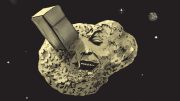Steve Jobs, the man who founded, lost and then reinvented Apple Inc. (née, Apple Computers), died last week at age 56 of complications relating to pancreatic cancer. He left behind a legacy that spanned decades, industries, and indeed the entire globe. He took Apple to the absolute pinnacle of its potential; measured by market capitalization, it is currently the largest publicly traded company on the planet. He has been compared by many in the past week to towering figures like Thomas Edison, and his impact on the technology industry is impossible to deny.
But there are question marks as well. Apple may be on top of its game right now, but that is by no means going to last. Over the past year, small but significant weaknesses have started to creep up. It remains to be seen whether Jobs’s unique vision will be of help or hindrance to the company he built.
Jobs, along with his friend Steve Wozniak, co-founded Apple Computers, Inc. in 1976. The company quickly became one of the pillars of the fledgling home computing industry. However, the company’s business model, as a hardware-software outfit, eventually lost out to Microsoft’s much more flexible licensing model. In 1985, Jobs was forced out of Apple, and the company languished in relative defeat for more than a decade.
Jobs was brought back into the fold in 1996 when Apple bought his second company, NeXT Computers. Within two years he was back at the top, and he quickly set about turning Apple from a dedicated computer company into the consumer electronics behemoth that it is today.
I could go on at length about Jobs’s many abilities, but arguably his greatest strength was the clarity of his vision for technology. The products that Apple has released over the past decade, from the iPod to the iPad, all share key characteristics. They have a simple, iconic industrial design; Jobs was one of the first in the computer industry to acknowledge that aesthetics impact consumer decisions, and thus sales. Their software is relatively simple and straightforward, with an attractive user interface. And perhaps most importantly, they are all very tightly executed; Apple products invariably work very smoothly and rarely crash, owing at least in part to the fact that the hardware is purpose-built to support the software.
Jobs also had a singular eye for recognizing innovations that were on the verge of becoming feasible for use in consumer products. His strategy was simple: identify the technology, seek out the primary manufacturer, shower said manufacturer in enough cash to lock down long-term and exclusive supply deals and then start designing a product. To this day, when an Apple product goes into production, many key technologies around the world go into short supply, and Jobs fiercely defended his supply chains to ensure that his products were getting the best of the best, and that everyone else was only getting the rest.
These and other talents helped him take the company he started from a flailing has-been to the top technology outfit in the world, and while Jobs had help, more so than any CEO in recent memory he came to define and personify his company. No product launched without significant input from him, and the slightly messianic public image that he presented has taken the brand loyalty of his customers and turned it into something that distinctly resembles a cult.
But Apple is not bulletproof, and part of the reason for that is Jobs himself.
The closed software and hardware ecosystem he always insisted upon was the result of his obsession with his own vision. One of the things that always infuriated me about Jobs and his public image was that he put forth an image of himself and his company as entities that were part of the counter-culture, going against the grain and bucking the system. Yet, viewed in isolation, Apple exercises far tighter control over its own products, and thus its customers, than any of its competitors — that this has largely escaped notice is nothing short of a miracle of marketing.
The closed ecosystem is what caused Apple to lose in the 1980s, and it looks like history might be about to repeat itself. One of the company’s biggest successes, the iPhone, is increasingly becoming marginalized by a competitor, Google’s Android, which benefits from a much more flexible business model, allowing manufacturers to one-up Apple on both price and performance. And given disappointment with the latest iPhone, the 4S, this trend is unlikely to reverse anytime soon.
Another market that Apple recently reinvigorated with its iPad is tablet computing. But the iPad, while unquestionably the dominant product in its category right now, is not guaranteed a perennial crown; Android is gaining traction here as well, and next year’s Windows 8 promises to combine the battery life and size advantages of mobile computing with the flexibility of a desktop operating system. Again, Jobs’s obsession with his own vision may yet yield less than the result many consumers are looking for, once presented with viable alternatives.
Of course, Jobs never seemed to care whether people agreed with his ideas or not — that was his great strength as an innovator. Going forward, though, it remains to be seen just how well Apple can manage without such strong and distinctive leadership, especially when that leadership, for all of the successes it brought, may have simultaneously planted the seeds of failure. Win or lose, though, Apple will be an important company for years to come, and Steve Jobs’s shadow will continue to loom large over the many products and industries that he touched.
Greg Sacks is a second-year law student at Robson Hall and a member of the Manitoban’s volunteer staff.




